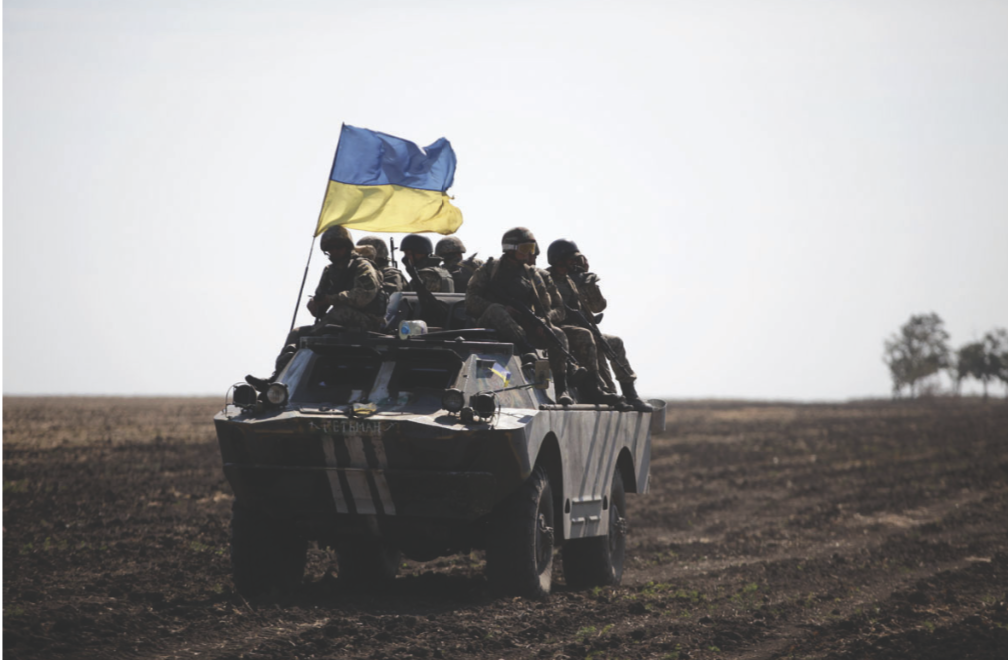Is Military Aid in Ukraine Escalating the Conflict?
After almost a year of war, Ukraine’s situation has only grown more dire. With the border at a standstill, the Russian Federation has pledged further mobilization, countered by the arrival of North Atlantic Treaty Organization (NATO) tanks and plans for the future delivery of warplanes. A mounting Russian offensive in Donetsk has promised no diplomatic end in sight, with a reported possible encirclement of Bakhmut. As we enter the first anniversary of the beginning of the war with a continuing ramp-up of aggressive rhetoric and increasing Western aid, is there still hope for a peaceful solution?
Earlier this week, the United States government announced an additional 2 billion dollars in aid to the Ukrainian government. One of the critical points of this aid was the Ground Launched Small Diameter Bomb (GLSDB), a missile with a range of 94 miles, as reported by Reuters. While this may not seem an essential point of info compared to the delivery of 140 NATO tanks, this shows a huge step away from past U.S. policy of not sending any long-range missiles. A step immediately commented on by Russia, with the Kremlin spokesman Dmitry Peskov on Feb. 1, 2023, commenting that these missiles represent a further escalation in the war, warning that NATO aid creates “very peculiar, hostile” conditions of war, conditions that Russia “cannot ignore.” While we can recognize the right of Ukraine to defend itself, we cannot pretend that the further sending of aid does not escalate the conflict. French Prime Minister Macron said on Jan. 30 that any arms sent by France would “not be escalatory” and not to be used on Russian soil. In a quick retort reported by the Moscow Times on Feb. 1, the Russian Minister of Foreign affairs asked: “Is the president of France really certain that if arms, heavy weapons, and aircraft are supplied to the Kyiv regime to conduct combat operations, this will not lead to an escalation of the situation?” she said. “I refuse to believe that an adult person is guided by this kind of logic.” With world leaders throwing books of rhetoric against each other, is the fear of an escalating conflict unfounded?
With the moving of the Doomsday clock to 90 seconds to midnight on Jan. 24, there is a palpable fear of what the continued escalation may lead to; total nuclear devastation. Juraj Kittler, an Associate Professor of English, talked to me about his worries, saying, “I am not worried about nuclear war, but I am worried the West is only giving aid to Ukraine in hopes of bleeding Russia. NATO has only been giving enough assistance to allow Ukraine to scrape by in the war, all at the expense of the Ukrainian people. Given the situation, I believe it’s not the time for more military aid but for actual diplomatic negotiations to begin.”
On the ground at the Sullivan Student Center, I had the chance to ask numerous St. Lawrence students their thoughts and worries regarding the conflict. Overall, students are not worried about the conflict’s increasing escalation. Regarding nuclear weapons, Ben Roach ’25 believes they won’t be used, ” In my opinion, all the actors are rational enough to avoid nuclear war .”While our rational brains recognize no one would win a nuclear war, Matt Grant-Bolton ’23 still carries that anxiety with him, saying, “I’m worried in the back of my mind, but it’s not constantly commanding my attention .”Of course, we all have lives to live, and there’s no use carrying that existential dread daily. But the worries remain even if we dismiss them as irrational.
While officials from both NATO and Russia do not favor a war between the two sides, there is still a sense of unease in the recent deploying Western tanks into Russia. Will this lead to possible future misunderstandings? Similar to the Ukrainian missile landing in Poland in November, further NATO entanglement in this conflict provides more avenues for open conflict. Only the future will tell us what will happen next in Ukraine, but we can only hope it is one of peace.



